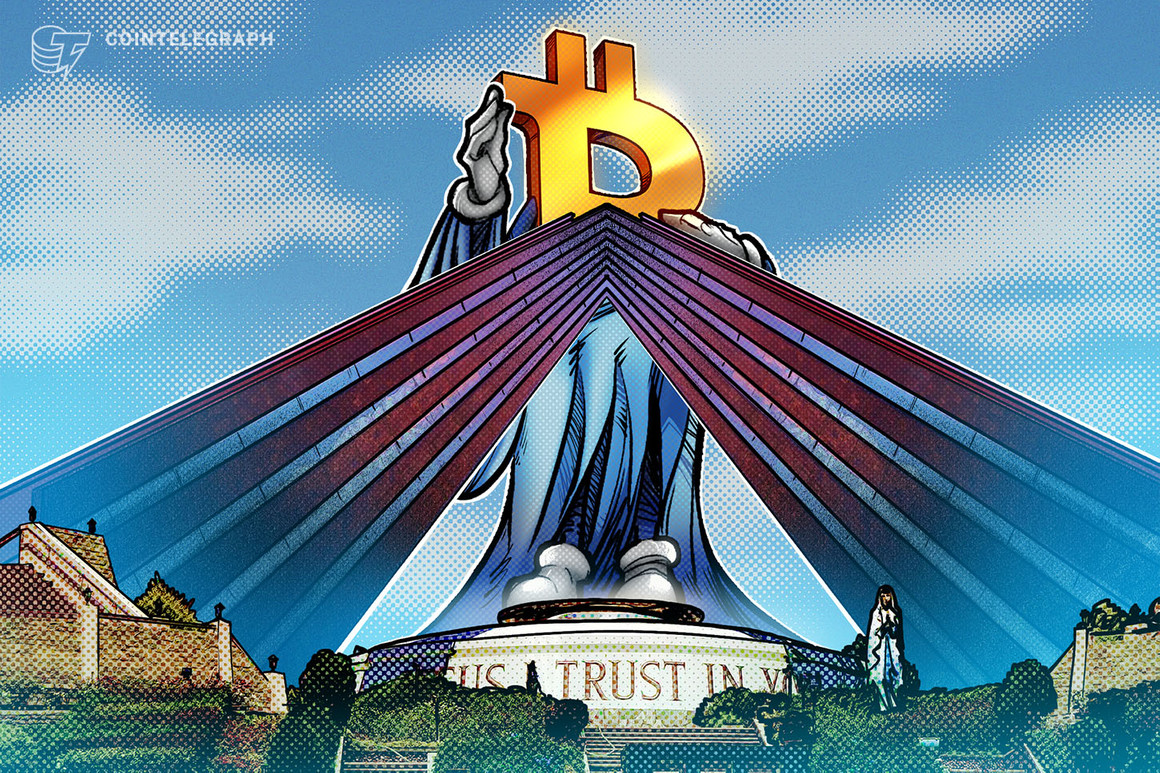The grassroots Mi Primer Bitcoin or “My First Bitcoin” program has picked up steam in El Salvador. The first cohort of Bitcoiner-come-students began s
The grassroots Mi Primer Bitcoin or “My First Bitcoin” program has picked up steam in El Salvador. The first cohort of Bitcoiner-come-students began studies in May this year. Founded by John Dennehy, an American activist and journalist, the program also has the support of the El Salvador government.
El Salvador’s first #Bitcoin diploma program launched with the support of its Ministry of Education pic.twitter.com/ajIHPHzqap
— Bitcoin Magazine (@BitcoinMagazine) May 2, 2022
Cointelegraph spoke with Dennehy and Gilberto Motto, El Salvador’s Director of Education, to delve into the country’s struggles and successes in Bitcoin education and to understand the rate at which Bitcoin education is spreading among the land of volcanoes.
The Genesis Block
When El Salvador adopted Bitcoin (BTC) as legal tender on June 8, 2021, very few El Salvadorans besides President Nayib Bukele could explain concepts like seed phrases, Satoshis or mining. There was “Bitcoin Beach,” the name donned to the sleepy surf town El Zonte, the birthplace of Bitcoin adoption in El Salvador.
But, the 3,000 local residents would have their work cut out to teach the remaining 6 million population. Indeed, Salvadorans would require hundreds of hours of training, learning and “orange-pilling” to be able to save and transact in Bitcoin.

A mammoth task loomed for the Salvadoran government. Motto told Cointelegraph that as per Article 6 of the Bitcoin Law, approved on June 8, 2021, “The State will provide training on the use of this cryptocurrency.” However, what would that training look like? How could the state rapidly and effectively introduce Bitcoin classes when they themselves would also have to get to grips with new money?
All the while, Bitcoiners, commentators and the mainstream media watched as the El Salvador experiment played out. Dennehy, who had spent the past living and working in Latin America, told Cointelegraph that upon the law’s announcement, he had to get to the country ASAP:
“I knew that I wanted to do something to help make sure that it worked out, that it was a success here.”
Dennehy had been “predisposed to the separation of money and state” for some time, and upon first learning of Satoshi Nakamoto’s innovation, while living in Ecuador in 2013, he became a fervent Bitcoiner. He jokes that as per most “OG” Bitcoiners’ experiences, the first exchange he bought BTC from was hacked, losing him around 2 BTC at the time — now worth over $40,000 at the time of writing.
Almost 10 years later and after the arrival of the first country to adopt Bitcoin, he had to find a way to pitch in. He flew to El Salvador the second the opportunity would allow. However, similar to other Bitcoiners who have made the pilgrimage to El Salvador, he was struck by how few merchants and vendors accept Bitcoin. “There were effectively zero [merchants] when the law came into effect,” Dennehy told Cointelegraph in May this year.
Rikki, a Bitcoin podcaster and human rights activist who spent 45 days living in El Salvador living on Bitcoin and nothing else, told Cointelegraph similar stories about his travels in Bitcoin Land: “Nobody here knows anything about Bitcoin. [The government] didn’t provide one second of education to the people of El Salvador.”
Motto explained to Cointelegraph that Bitcoin has since been incorporated into financial education as well as financial literacy programs across the country. Motto told Cointelegraph that “The Ministry of Education, Science and Technology is working together with various institutions related to Bitcoin in the country:”
“Including Bitcoin Beach Wallet, Mi Primer Bitcoin and others, in the development of a training module in Financial Education that incorporates updated content such as cryptocurrencies and electronic wallets.”
Even so, relying on a government or third party to get things done would be counter to Bitcoin’s ethos, that of “don’t trust, verify.” A grassroots Bitcoin education campaign that would spread like the network, one which would complement and extend the government’s Bitcoin education plans, would be well suited.
“Mi Primer Bitcoin,” or My First Bitcoin in English, founded by Dennehy in 2021, is a non-governmental organization that offers free Bitcoin education to Salvadorans. It has since received funding from the LookingGlass as well as IBEX Mercado, a Bitcoin and Lightning Network service provider.
Now this is an initiative worth putting time and effort into. Got some spots open for Bitcoiners that want to help and make a difference, at the grass roots level.
DM me if interested..https://t.co/y1cvrESJt1
— Svetski. UnCommunist.com (@SvetskiWrites) July 7, 2022
The project came to Dennehy during his first conversations with Salvadorans when familiarizing himself…
cointelegraph.com
